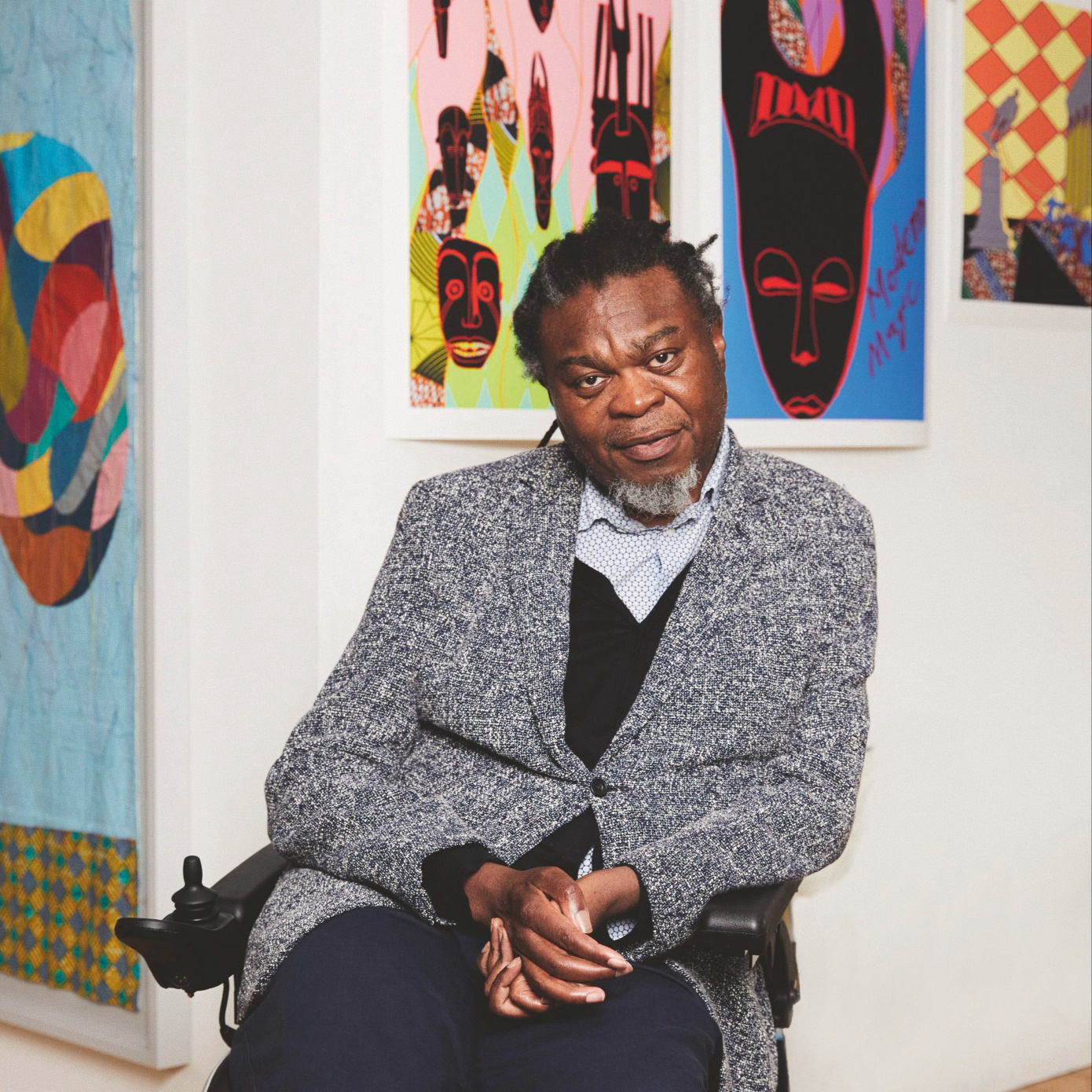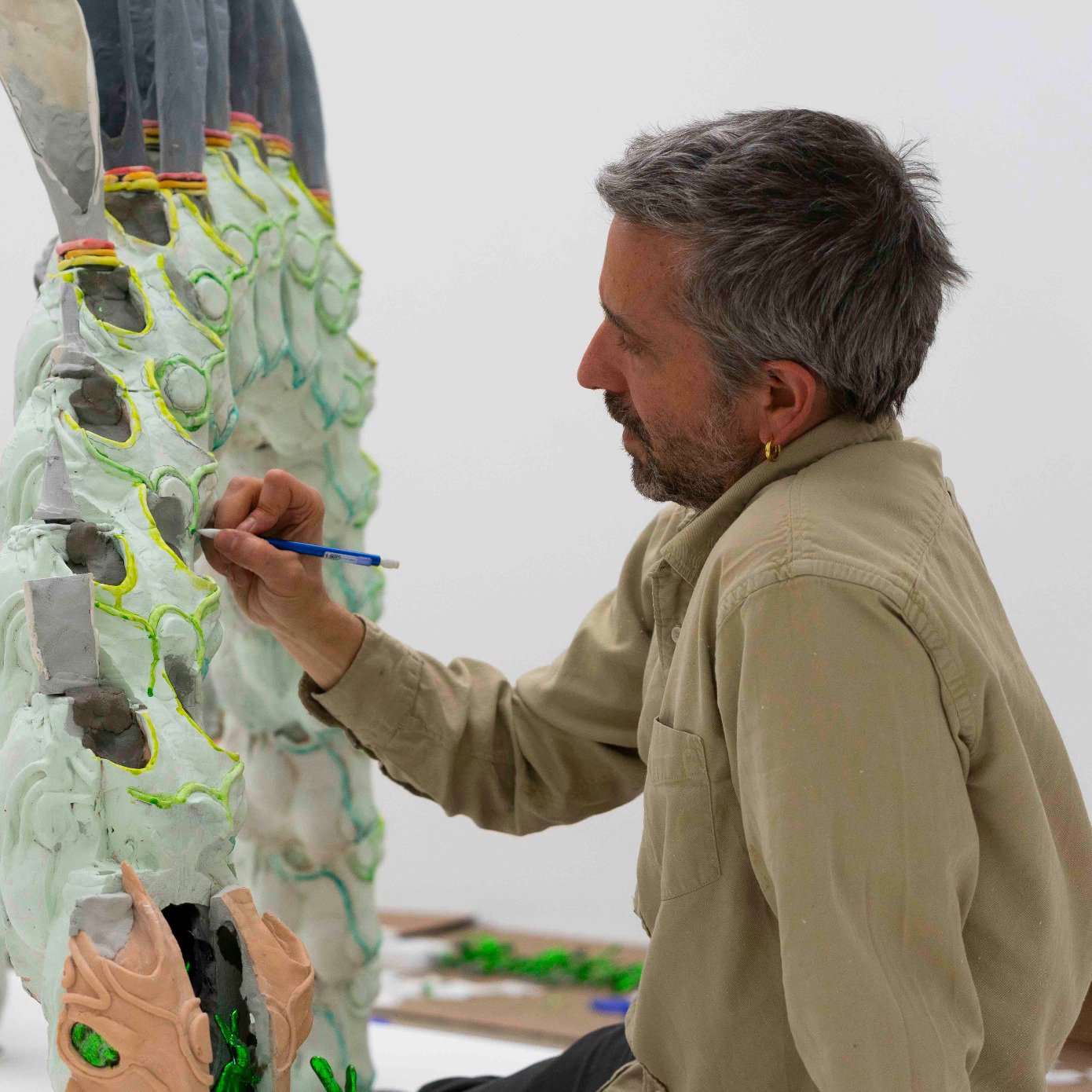
To see Greg Fox perform is to be dazed by his incredible capacity for drumming. But beyond his musical prowess, there’s an otherworldly quality about Fox that has me enraptured from our very first conversation. He is a man with one foot in the music world, one foot in the art world, and a universe in each fingertip.
Fox’s new record, The Gradual Progression, is like hearing someone wave hello. Perhaps this is because it is a translation of gesture. It was created using Sensory Percussion, a program that uses sensors, placed on the rims of drum heads, that turn the kit into a nuanced MIDI controller. The drummer can then assign a variety of software instruments to an infinite number of sound waves. “It’s kind of like LIGO but for a drum kit,” Fox explained, referring to the Laser Interferometer Gravitational-Wave Observatory, which scientists use to detect cosmic gravitational waves in the universe.
The gestures made on the drum kit are converted to MIDI before they enter “sound worlds” created by the artist on his computer. Fox thinks about sound architecturally, and the resulting music feels like sculpture in a boundless space. “I get to a point where I’ve built this thing, this world, this black box,” explains Fox. “I put a gesture in, I make an intuitive movement, and then something comes out the other side.”

Fox embraces the element of chance, and even writes it into some of his sounds; a percentage of randomization is in the DNA of each track. Sculpting a series of limits, the artist then presides over them and makes adjustments as the sound moves through. The same goes for the patches he builds on his modular synthesizers. When he turned the modules on to give me a demo, they screamed to life as if to greet him. The interaction was more like one between a person and a pet than a man and a machine. Accordingly, Fox has developed an emotional attachment to the synths. “I miss them when I go on tour,” he admits.
Fox left the synthesizers running as we continued to speak, and they became like third and fourth participants in the conversation. “Bip bip rheeeeeeeee zuh brrrrrdot dot dot bink,” they whiz and buzz. “I can’t take credit for the sounds they’re making,” he says. “They are doing it. I built the framework for the reaction, but they’re doing it.” Fox even gives credit to his drumsticks. “If you hold them the right way, they do all of the work.”
However, Fox can take full credit for some of the sounds in his universe. In 2014, Fox released an album, with the help of Milford Graves, titled Mitral Transmission. In it he features four compositions made by using MIDI generated from his heartbeat. “I hear this and it sounds like me,” Fox says. “There is a relationship between the input and the chain of reactions and behaviors that comes out on the other side. It’s all within this cloud of possibility.” It’s hard to ignore the parallel between his methodology and his heart; he keeps it alive, but he doesn’t tell it how to beat.




